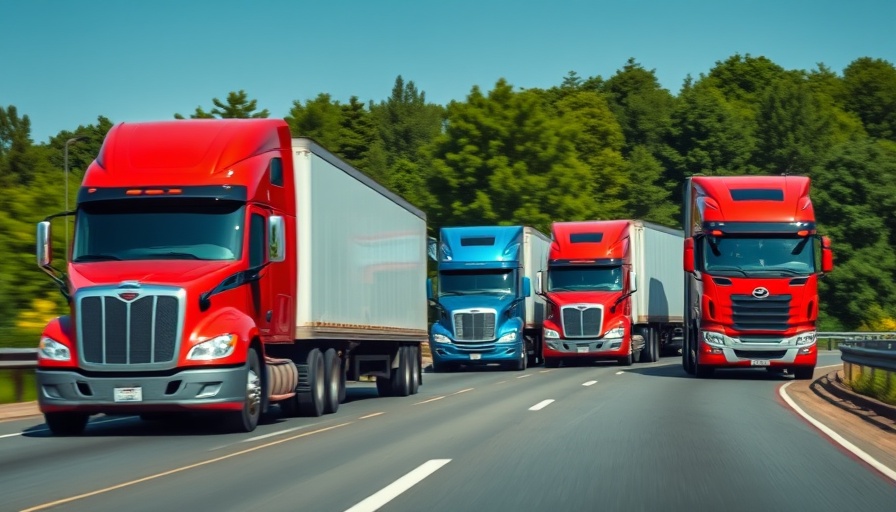
Sustaining Resilience in Logistics with AI
The logistics sector must adapt quickly to survive in a rapidly changing world. An emblematic case is Ford's decision to cease its long-standing relationship with the auto hauler Jack Cooper, resulting in the looming layoff of over 400 employees. The narrative underscores the peril companies face when they lack contingency plans during turbulent times. This highlights the importance of integrating AI and automation into logistics operations.
Embracing AI for Operational Efficiency
When revenue dips, logistics companies need to act swiftly. AI and data analytics serve as powerful tools to optimize fleets and refine pricing strategies. Research reveals that 42% of firms have shifted from traditional just-in-time (JIT) models to multiple sourcing practices. By embracing an executive AI strategy, firms can implement digital twin technologies that simulate various route configurations, assess depot locations, and accurately predict demand fluctuations. As a result, they can bolster fleet efficiency and lower operational costs.
Fuel Management through Driver Engagement
Moreover, efficient fuel consumption remains a priority in the logistics sector. Traditional incentives often fall short; companies need to foster a culture of active participation among drivers. Leveraging AI-powered analytics, businesses can establish clear efficiency targets and create reward programs that genuinely engage drivers. This approach not only reduces fuel costs but also fosters a sense of teamwork among the workforce.
Future Trends: Automation and Ethical Leadership
Looking forward, the incorporation of emerging technologies like machine learning and automation will continue to shape the logistics landscape. As more companies adopt these technologies, ethical AI in leadership will become paramount. C-suite executives must ensure that their AI initiatives are guided by principles of fairness and accountability, particularly in hiring practices and workforce management.
Conclusion: Adopting AI and Transforming Business
For logistics companies, the road ahead relies heavily on the adoption of innovative solutions like AI and automation. By acknowledging the profound human stories behind these changes and leading with empathy, executives can drive their organizations towards a more resilient and productive future. Embracing this digital transformation is not just about staying competitive; it’s about shaping a sustainable future in the logistics industry.
 Add Row
Add Row  Add
Add 




Write A Comment